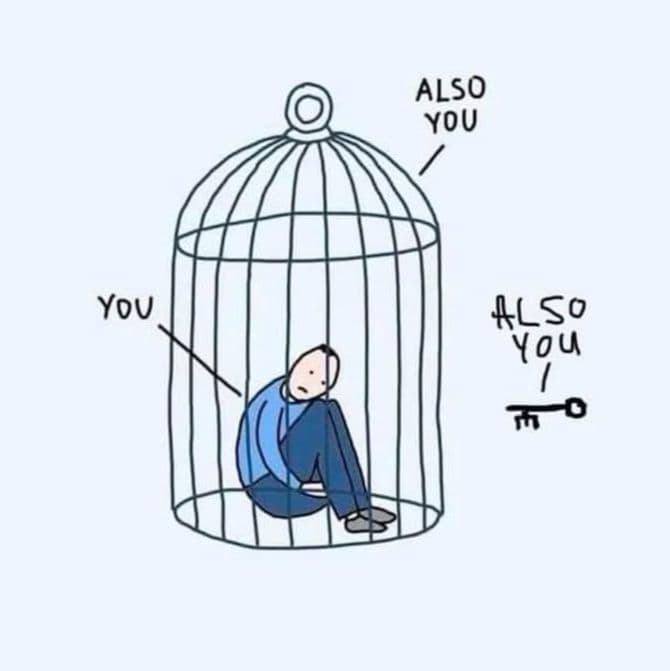
It was in the year 2010, when I first handled my solo client project. At that time, I did not have any idea that a decade later I would be mentoring engineers on the things that no one has put in the job description.
Back then, most of us lived by a simple formula:
Doing good work and getting a good performance review gives you professional growth.
Performance reviews and clean commitments to work were treated as the golden ticket to success. It pushed one to work hard, complete their tasks and give good results. Over time, I have walked through a structured 10,000-person multinational corporation and through a 50-person startup. I wrote code, managed teams, pitched to clients and built systems from scratch.
Each experience was valuable and they revealed something most professionals realize too late: Your job and your career are not the same thing.
The hidden distinction between job and career
Your job is what you are paid to. You simply do the tasks given to you to keep the company running and you are said to be employed. It gives you pay checks. However, career is the long-term narrative of who you are and what you stand for. It is like your professional trajectory which determines whether you remain relevant, visible and valuable in the industry. Most of us treat them as interchangeable until you see the difference that plays out in real life.
One offers income. The other creates identity.
Doing good work was more than necessary in a traditional workplace. But in modern offices, ‘good work’ alone is not enough. What matters the most is the visibility. You can be a top performer for years and still remain invisible outside your team.
When experience doesn’t equal growth
I have met countless engineers and professionals with many years of experience who feel stuck. Why do you think it happened? Not because they have failed but because they have succeeded only within the boundaries of their role. They have mastered internal tools, different processes and systems. They must have also built a strong reputation within their company. But what is there outside the company? Silence. This is the quiet trap for them when they stop growing beyond their job description.
People who think only in terms of their job often get stuck somewhere, like hitting an invisible ceiling while people who invest in their career build space to new possibilities. They are not confined and they would not get stuck easily. The idea behind it is simple, job helps you acquire some skills and experience but it does not give you growth beyond that. They must be able to gain a name or identity inside their company but no one would know about them outside the company.
Thus, invisibility is a silent career killer.
The reputation gap no one talks about!
Here is what I teach every one I mentor. You have to build two reputations:
- Internal reputation
- External reputation
Internal reputation is what the team thinks of you. It is how your peers, managers perceive you. It is shaped by the work you do every day. It is a win in the traditional work life pattern. It is mainly based on performance reviews. You build it by:
- Giving consistent results
- Strengthening team culture
And the result is promotions, trust and recognition inside your company.
External reputation is what the world beyond your company knows you for. It is built through visibility. You can build it by:
- Contributing to community projects
- Speaking up at meetups and conferences
- Networking
The result is credibility, new opportunities outside your office and long-term career stability.
The risk of staying invisible
Many professionals hesitate to build a presence outside their office. They fear being judged or ignored. Visibility does not ask for perfection. Visibility is about participation. You just have to be genuine about what you are contributing and maintain consistency in what you are doing.
In order to get promoted easily, the first one, internal reputation works better. While the second one, external reputation gives you options. Consistency is important in both the cases. When you succeed to get both the reputations, your career is on a safe track.
A major roadmap to visibility
It begins by documenting your whole journey. Every challenge you face professionally and solutions you bring forward is a story worth sharing. Following it, the next step is to engage meaningfully that includes professional postings in social media platforms, contributing to discussions and sharing your perspective in meetings. You need to define what you want to be known for, whether it is technically or as good leadership in order to build a good career.
The reputation you try to build does not happen overnight. They are the outcome of small results collected over time. When you start viewing your work through the dual lens of internal and external reputation, there happens the changes. You attract opportunities that goes well with your goals.
Is growing your job or growing your career important to you? It is in your hands. So, ask yourself: Are you growing your job or your career?

Your Brain Isn’t Built for Greatness. Here’s How to Work Around It!

How MVP Culture Undermines Great Products

Sometimes the Best Mentors Don’t Say Much, But They Change Everything
